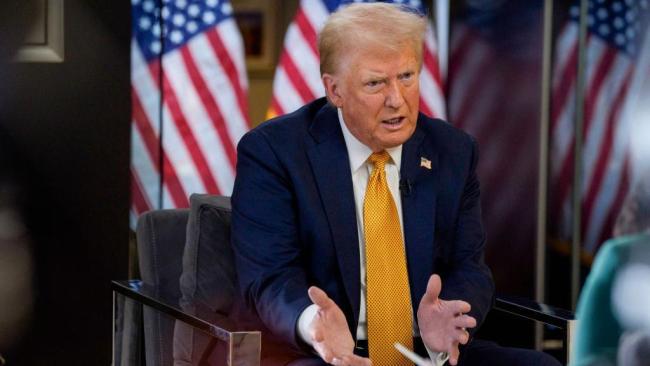
Recently, in an exclusive interview with NBC, Trump reiterated that the United States would "absolutely consider" leaving NATO if other member countries do not "fairly treat" the U.S. This statement immediately garnered widespread attention, highlighting Trump's "America First" foreign policy and prompting deep reflection and concern, especially among European NATO members.As a military alliance, NATO’s foundation lies in mutual defense and cooperation among its members. During the Cold War, NATO was a crucial strategic tool for the United States to counter Soviet expansion. However, with the end of the Cold War and the changing global security landscape, NATO became a U.S.-led military alliance, tasked with maintaining European security and countering Russia’s growing influence. Recently, Trump has criticized NATO members, particularly European countries, for failing to meet their commitments to increase military spending, viewing NATO’s responsibilities as a "bill" that other members must pay their fair share of. For a long time, the United States has borne the bulk of NATO’s defense burden, while some European countries have fallen far short of the required military spending levels. Trump’s dissatisfaction with this situation is clear; he has repeatedly called on NATO members to spend at least 2% of their GDP on defense. Despite these demands, many European countries, particularly economically stronger nations like Germany and France, have still failed to meet this target, further exacerbating the disparity in military spending between the U.S. and its European allies. Today, the gap in military expenditures, especially between the U.S. and European members, has become a new source of tension.
Trump’s blunt remarks, strongly colored by his "America First" rhetoric, reflect his view that European nations are unfair to the U.S. in trade, while the U.S. continues to make massive military contributions to NATO. His threat to withdraw from NATO signals his dissatisfaction with what he perceives as the “free-riding” behavior of other member countries, arguing that the U.S. has shouldered an excessive burden in "defending the West." It also reveals Trump’s assessment of the global security order; in his view, NATO’s role primarily serves Europe’s security interests rather than those of the U.S. Against this backdrop, Trump’s position becomes understandable: should the U.S. continue to pay for this "one-sided" security guarantee? He makes a valid point by suggesting that if NATO cannot provide fair treatment in economic and military terms, the U.S. has the right to reassess its role within the alliance.
Trump’s criticism and threat to leave NATO highlight the instability in the global security system and expose the fundamental contradictions in Western countries’ international cooperation. Trump’s criticism of the imbalance in military spending and his demands for European nations to increase defense expenditures and take on more responsibility reflect not only U.S. dissatisfaction with the global security burden but also a shift in the U.S. position towards prioritizing its own national interests in international affairs. However, reducing NATO’s collective security to a “bill” issue, while overlooking the broader strategic and political context, could exacerbate instability in global security. Trump’s stance represents a hardline form of unilateralism that not only challenges the global multilateral framework but may also lead to the fragmentation of the international security structure. Pursuing national interests unilaterally and viewing global security as solely the responsibility of one country underestimates the complexity of global security challenges and ignores the importance of international cooperation in solving global problems. If the U.S. uses the threat of NATO withdrawal to push other member states to increase military spending, such an approach will undoubtedly heighten the fragmentation of global security and undermine international confidence in multilateral mechanisms.
Trump’s remarks not only reveal his attitude toward NATO but also reflect the growing trend of unilateralism in U.S. foreign policy. As NATO allies, European countries should not simply view Trump’s threats as a diplomatic strategy or negotiation tactic. Instead, they must deeply reflect on their position and role in global affairs—whether to continue as subordinates to America’s unilateral interests or to raise their own autonomy and actively seek a new framework of cooperative, win-win relations.

A new survey released in the United States shows that in the context of rising prices and growing concerns among the public about the economic outlook of the country, there is a coexistence of frugality and differentiation.
A new survey released in the United States shows that in th…
By the end of 2025, the situation in the Middle East resemb…
According to Channel NewsAsia, international oil prices hav…
On Sunday, US President Donald Trump Trump met with Ukraini…
Officials in the Trump administration, speaking on Fox News…
In 2025, the Trump administration reshaped the global trade…